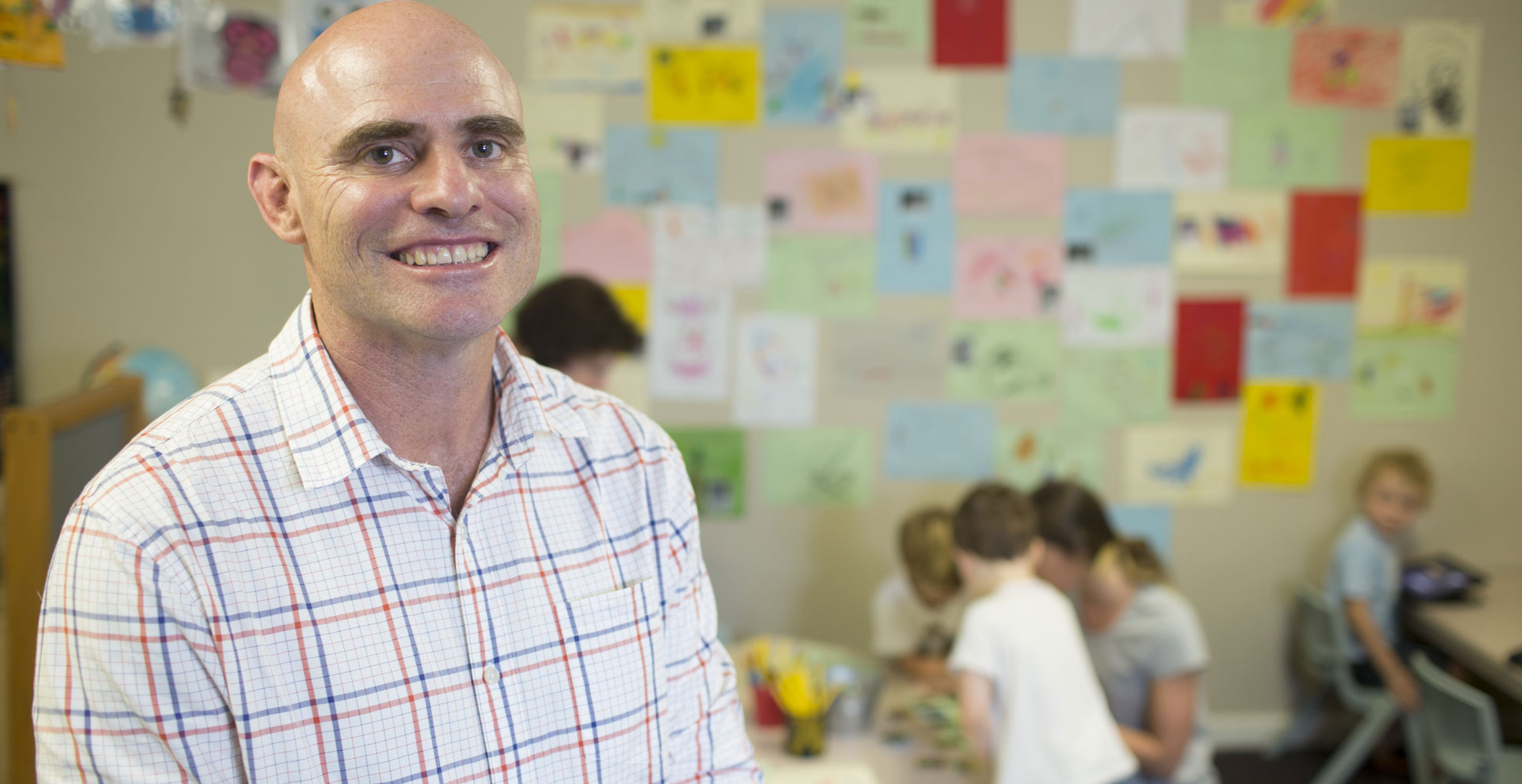May 5, 2020
COVID-19 could have long-term impact on children’s sleep, physical activity, and screen time
Commentary published in The Lancet outlines concerns among early childhood researchers
The COVID-19 pandemic, and consequent social isolation in the home, could have a detrimental impact on the long-term physical and mental wellbeing of children, according to University of Wollongong (UOW)’s Senior Professor Anthony Okely.
In a co-authored Comment piece in The Lancet Child and Adolescent Health, published last week (29 April 2020) Professor Okely, Director of Research at UOW’s Early Start, outlined the impact the crisis was having on the health of children around the world, and how that could escalate if physical activity was not made a priority in a post-lockdown landscape.
Professor Okely, who developed the Australian 24-hour movement behaviour guidelines for children, said while research into how the pandemic has affected children’s daily movement, sedentary screen time, and sleep was so far limited, evidence already demonstrated that these three tenets of wellbeing had been compromised.
Children are more active when they are at school, taking part in sport or playing at lunch, than when they are at home, the piece said.
“To date, we have little evidence to know if, as a result of home confinement, children are spending less time active, going to bed later, and sleeping in later because they do not have to travel to school, or spending more time sedentary, especially through recreational screen time,” the Comment in The Lancet said.
“Evidence shows that children are less active and more sedentary, with less consistent sleep patterns, on unstructured or non-school days (i.e., when they are not physically at school) than on school days.”
Evidence from the 15 countries represented by the co-authors showed that children were accessing public parks, playgrounds, and sporting fields less frequently during isolation, as these places had, in many countries, been declared off limits.
The authors said the reduction in physical movement, and the rise in sedentary screen time, was alarming, but they were most concerned about how this would continue in the long-term if physical activity was not made a priority for children. The impacts could include lower vitamin D levels, the onset of myopia, and poor mental health.
Professor Okely said he was worried that this would become “the new normal”, particularly among those who lives in apartments and may not have access to their own backyard.
The authors have created a set of recommendations for governments and parents to ensure that children’s health remains a priority, both in lockdown and beyond.
The recommendations include encouraging health educators and teachers to promote movement in daily online lessons; for health providers to reinforce the positive impact of activity during consultations with children; and for the media to regularly include messages encouraging kids to move more and sit less.
The Comment piece in The Lancet Child Adolescent Health was authored by academics from 15 countries: Hongyan Guan, from China; Nicolas Aguilar-Farias, from Chile; Borja del Pozo Cruz, from the Australian Catholic University; Catherine E Draper, from South Africa; Asmaa El Hamdouchi, from Morocco; Alex A Florindo, from Brazil; Alejandra Jáuregui, from Mexico; Peter T Katzmarzyk, from the United States; Anna Kontsevaya, from Russia; Marie Löf, Sweden; Wonsoon Park, from South Korea; John J Reilly, from Scotland; Deepika Sharma, from the United States; Mark S Tremblay, from Canada; and Sanne L C Veldman, from The Netherlands.
Main photo: Senior Professor Anthony Okely, in pre-social distancing days, is one of 15 authors worldwide. Photo: Paul Jones
